Diesel Gasoline
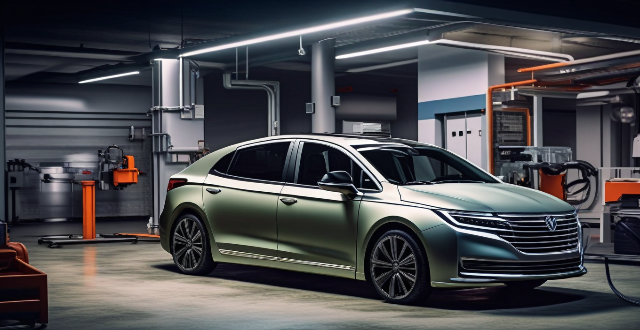
Are diesel hybrid cars more fuel-efficient than regular diesel cars ?
Diesel hybrid cars are more fuel-efficient than regular diesel cars due to the combination of a diesel engine and an electric motor, which optimizes fuel consumption and reduces emissions. They offer improved fuel efficiency, lower emissions, and better performance compared to traditional diesel vehicles.
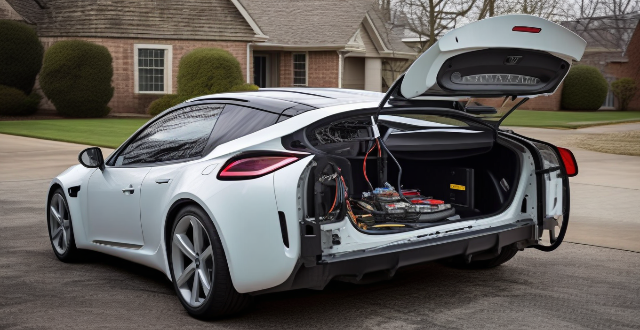
Can you convert a regular diesel car into a diesel hybrid car ?
Converting a regular diesel car into a diesel hybrid is possible but involves technical challenges, high costs, and potential legal and warranty issues. It requires installing a battery pack, integrating electric motors, and modifying the drivetrain and control systems. Professional assistance is recommended due to the complexity of the project. The financial investment may not be justified compared to buying a new hybrid vehicle. Legally, modifications could void the warranty and affect insurance coverage, and compliance with emissions and safety standards must be ensured.
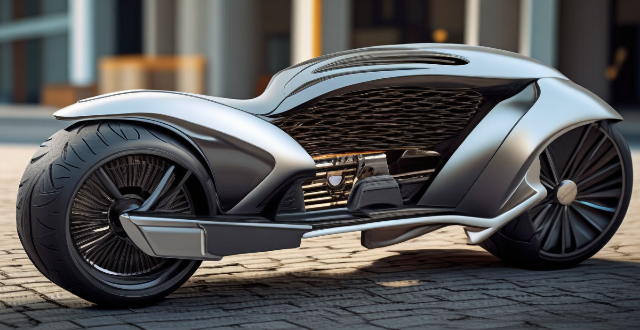
Are diesel hybrid vehicles better for the environment than regular diesel vehicles ?
Diesel hybrid vehicles, which combine a diesel engine with an electric motor, have the potential to be more environmentally friendly than regular diesel vehicles. They can offer improved fuel economy and reduced emissions of CO2 and particulate matter. However, the production of batteries for hybrid vehicles can result in higher upstream CO2 emissions, and advanced emission control systems are needed to significantly reduce NOx emissions. A comprehensive lifecycle analysis that takes into account all factors would provide a clearer picture of the environmental benefits of diesel hybrid vehicles compared to regular diesel vehicles.
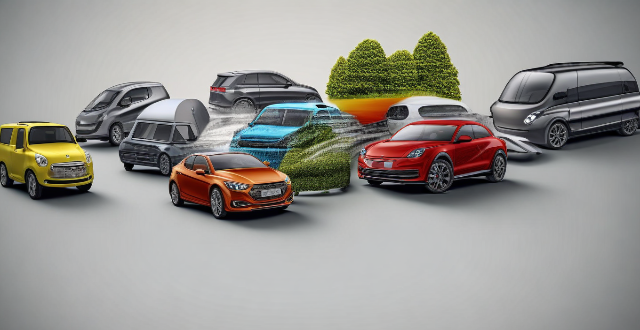
How much does a diesel hybrid car cost compared to a regular diesel car ?
The article compares the costs of diesel hybrid cars and regular diesel cars, considering factors such as initial purchase price, fuel efficiency, and long-term savings. Diesel hybrid cars are more expensive initially due to their advanced technology but offer improved fuel efficiency and reduced emissions, leading to potential long-term savings and environmental benefits. Regular diesel cars are less expensive upfront but are generally less fuel-efficient and produce more emissions. The choice between the two depends on individual priorities and budget.

Is it worth investing in a diesel hybrid vehicle for long-distance travel ?
Diesel hybrid vehicles offer high fuel efficiency and performance, making them suitable for long-distance travel. However, they come with higher costs and potential emission concerns. Alternatives like gasoline hybrids and electric vehicles might be worth considering depending on individual needs and circumstances.

What are some popular diesel hybrid car models ?
Diesel hybrid cars are becoming increasingly popular due to their fuel efficiency and lower emissions. Here are some of the most popular diesel hybrid car models: The Audi A3 TDI e-tron is a compact luxury car that combines a 2.0-liter TDI diesel engine with an electric motor. It offers up to 150 horsepower and can travel up to 31 miles on electric power alone. The Volkswagen Jetta TDI Hybrid is a midsize sedan that features a 1.6-liter TDI diesel engine paired with an electric motor. It provides excellent fuel economy and low emissions, making it an ideal choice for environmentally conscious drivers. The Peugeot 308 HDi Hybrid is a compact hatchback that combines a 1.6-liter HDi diesel engine with an electric motor. It offers impressive fuel economy and reduced CO2 emissions, while still providing plenty of power and performance. The Skoda Octavia iV is a spacious family car that features a 2.0-liter TDI diesel engine combined with an electric motor. It offers up to 240 horsepower and can travel up to 37 miles on electric power alone, making it a great option for long trips. The Volkswagen Passat TDI Hybrid is a midsize sedan that combines a 2.0-liter TDI diesel engine with an electric motor. It provides excellent fuel economy and low emissions, while also offering plenty of space and comfort for passengers.
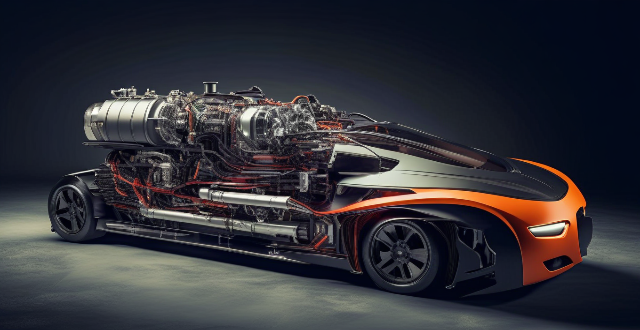
Can I still use gasoline in a gasoline hybrid car ?
Gasoline hybrid cars combine a traditional gasoline engine with an electric motor for improved fuel efficiency and reduced emissions. While they still require gasoline to operate the internal combustion engine, they offer significant savings in fuel costs over time. To maximize fuel efficiency in a gasoline hybrid car, drivers should practice eco-driving techniques, perform regular maintenance, and utilize regenerative braking settings. Gasoline hybrid cars represent a step towards reducing our reliance on fossil fuels and transitioning to cleaner energy sources.

Are gasoline hybrid cars better for the environment than traditional gasoline cars ?
Gasoline hybrid cars, also known as hybrid electric vehicles (HEVs), are becoming increasingly popular due to their potential environmental benefits. These vehicles produce fewer emissions compared to traditional gasoline cars and have better fuel efficiency. They also use regenerative braking technology, which captures energy normally lost during braking and stores it in the battery, further improving fuel efficiency and reducing emissions. However, gasoline hybrid cars also have drawbacks such as higher upfront cost, limited electric-only range, and potential environmental impacts from battery production and disposal. Traditional gasoline cars, on the other hand, are generally less expensive than gasoline hybrid cars and have a widespread refueling infrastructure. They are also often simpler and more reliable than gasoline hybrid cars. In conclusion, gasoline hybrid cars offer several environmental benefits over traditional gasoline cars, but they also come with drawbacks. The decision between a gasoline hybrid car and a traditional gasoline car depends on individual preferences, priorities, and circumstances.

How much more expensive is a gasoline hybrid car compared to a regular gasoline car ?
The cost difference between a gasoline hybrid car and a regular gasoline car can vary depending on several factors such as brand, model, features, and location. However, in general, gasoline hybrid cars tend to be more expensive than regular gasoline cars. Here are some key points to consider: - Gasoline Hybrid Cars: These vehicles typically have a higher initial cost compared to regular gasoline cars due to the additional technology required for the hybrid system. The price difference can range from a few thousand dollars to over $10,000, depending on the make and model. One of the main advantages of gasoline hybrid cars is their improved fuel efficiency. They use both gasoline and electricity to power the engine, which results in better mileage and lower fuel costs over time. While gasoline hybrid cars may have higher repair costs due to their complex systems, they often require less maintenance overall because the electric motor helps reduce wear and tear on the engine. As awareness of environmental issues grows, so does the demand for eco-friendly vehicles like gasoline hybrid cars. This increased demand can help maintain or even increase their resale value over time. - Regular Gasoline Cars: These vehicles are generally less expensive upfront as they do not require the same advanced technology as hybrid cars. These vehicles rely solely on gasoline for power, which can lead to higher fuel consumption and expenses, especially if you drive long distances or frequently idle in traffic. These vehicles may have lower repair costs initially but may require more frequent maintenance, such as oil changes and tune-ups, due to their reliance on a single power source. The resale value of regular gasoline cars may decline faster than that of hybrid cars, especially as more buyers seek out fuel-efficient options.
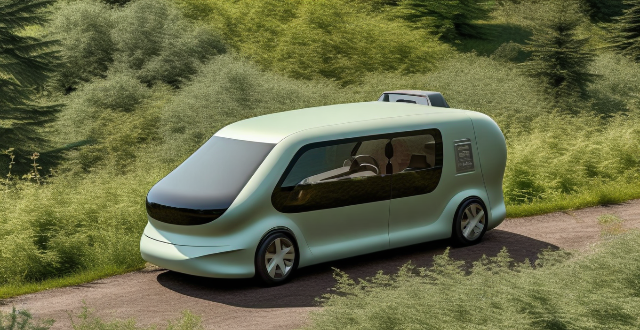
What are the pros and cons of owning a diesel hybrid vehicle ?
Diesel hybrid vehicles offer several advantages, including improved fuel economy and lower emissions. They also provide better performance and a quieter ride. However, they come with higher costs and complex technology that may require specialized maintenance. Additionally, limited charging infrastructure and potential weight issues can affect their efficiency and handling. The resale value of diesel hybrids might not be as high due to the specialized nature of the technology. Despite these drawbacks, diesel hybrids offer a reduced dependence on fossil fuels and can be a more environmentally friendly option for transportation.

Do hybrid cars produce less pollution than traditional gasoline cars ?
Hybrid cars generally produce less pollution than traditional gasoline cars, but the comparison is not straightforward and various factors must be taken into account.
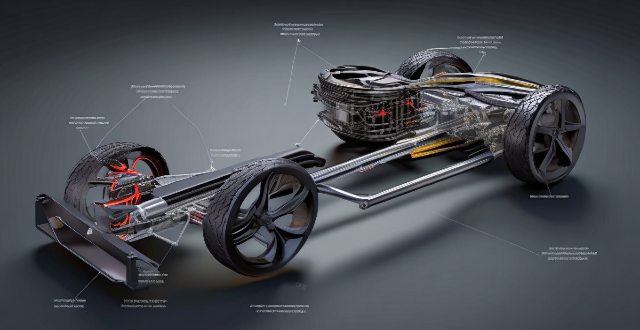
How does a gasoline hybrid car work ?
Gasoline hybrid vehicles, known as HEVs, merge an ICE with an electric motor for enhanced efficiency and reduced emissions. Key components include the ICE, electric motor, battery pack, transmission, and a generator/alternator. These cars can operate in various modes: fully on ICE power, purely electric, combined power, or through regenerative braking. The energy management controller optimizes power distribution for peak efficiency. Benefits of gasoline hybrids include better fuel economy, lower emissions, extended brake life, and potential tax incentives.

Are electric cars more expensive than gasoline cars ?
Electric cars, also known as EVs, have been gaining popularity due to their eco-friendly nature and lower operating costs. However, the initial purchase price of an electric car is often higher than that of a traditional gasoline-powered car. In this article, we will explore the cost differences between electric and gasoline cars. ## Upfront Cost **Electric Cars:** - Higher upfront cost due to expensive battery technology and limited production scale. - Prices vary depending on the model, brand, and range. - Some governments offer incentives and tax credits to offset the high initial cost. **Gasoline Cars:** - Generally less expensive upfront compared to electric cars. - Wide variety of models and brands available at different price points. - No government incentives or tax credits for purchasing a gasoline car. ## Operating Costs **Electric Cars:** - Lower operating costs due to cheaper electricity rates compared to gasoline prices. - Maintenance costs are generally lower since there are fewer moving parts in an electric motor. - Battery replacement can be costly, but it is not expected until after several years of use. **Gasoline Cars:** - Higher operating costs due to fluctuating gasoline prices and regular maintenance requirements. - More frequent oil changes, tune-ups, and other routine maintenance tasks. - Fuel efficiency varies widely among gasoline cars, affecting overall operating costs. ## Depreciation **Electric Cars:** - Depreciation rate may be higher for electric cars due to rapid advancements in technology and changing consumer preferences. - Some early adopters may experience significant depreciation if they choose to sell their electric car before its battery lifespan ends. **Gasoline Cars:** - Generally slower depreciation rate compared to electric cars. - Well-maintained gasoline cars can retain their value for longer periods. ## Resale Value **Electric Cars:** - Resale value depends on factors such as battery health, range, and charging infrastructure availability. - As more people switch to electric cars, the demand for used electric vehicles may increase, potentially boosting resale values. **Gasoline Cars:** - Resale value is typically more predictable and stable compared to electric cars. - Factors such as fuel efficiency, brand reputation, and vehicle condition affect resale value. In conclusion, while electric cars may have a higher upfront cost, they offer lower operating costs and potentially better resale value in the future. It's essential for consumers to consider both short-term and long-term costs when deciding between an electric or gasoline car.
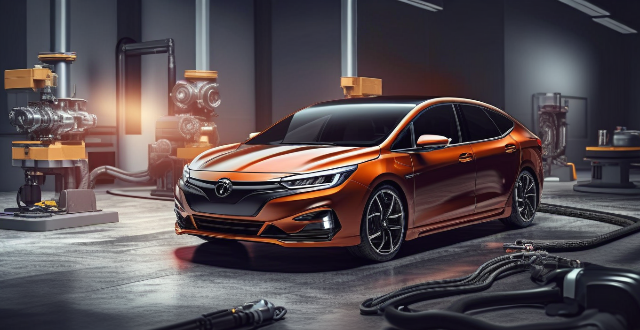
Do gasoline hybrid cars require special maintenance ?
This text discusses the maintenance requirements for gasoline hybrid cars, which combine a conventional engine with an electric motor for added efficiency. While these vehicles do not require extensive special maintenance, there are specific components that need attention. Regular maintenance such as oil changes, tire rotations, brake checks, and air filter replacements are still essential. Additionally, hybrid-specific maintenance includes monitoring battery health, checking the regenerative braking system, ensuring proper cooling of the electric motor, and maintaining transmission fluid levels. It is important to refer to the vehicle's owner's manual for specific maintenance schedules and seek out professional service when needed. By addressing both conventional and hybrid-specific maintenance needs, gasoline hybrid cars can run reliably and efficiently.

What are the benefits of a gasoline hybrid engine ?
The article discusses the advantages of a gasoline hybrid engine, which is a combination of a traditional internal combustion engine and an electric motor. The benefits include improved fuel efficiency through reduced fuel consumption, regenerative braking, and start-stop technology; lower CO2 emissions and decreased pollutants resulting in cleaner air quality; and enhanced performance with instant torque, smooth driving experience, and extended brake life due to regenerative braking. Overall, gasoline hybrid engines provide a balance between power and efficiency, making them an attractive option for eco-conscious drivers.
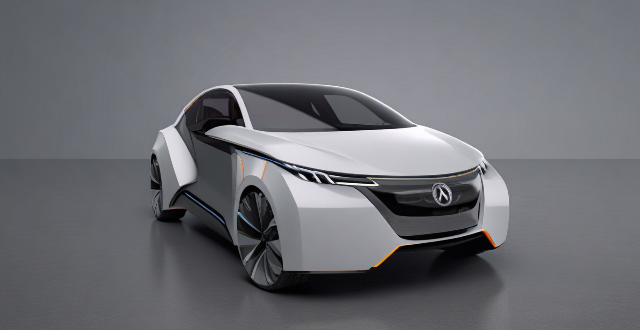
What is the difference between a gasoline hybrid and an electric car ?
The main difference between a gasoline hybrid and an electric car is their fuel source and how they generate energy. Gasoline hybrids run on a combination of gasoline and electricity, while electric cars run solely on electricity. Gasoline hybrids produce lower emissions than traditional gasoline-powered vehicles but still require gasoline to operate. Electric cars produce zero tailpipe emissions but may still result in emissions from electricity production. Finally, gasoline hybrids typically have a longer range than electric cars due to their ability to switch between using gasoline and electricity depending on driving conditions.

How do parallel hybrid electric vehicles (PHEVs) compare to traditional gasoline cars in terms of performance ?
Parallel Hybrid Electric Vehicles (PHEVs) offer better acceleration and fuel efficiency than traditional gasoline cars but may have lower top speeds and require more time for recharging. Gasoline cars have higher top speed capabilities and quicker refueling but are less efficient and require more maintenance. The choice between the two depends on individual needs and preferences.
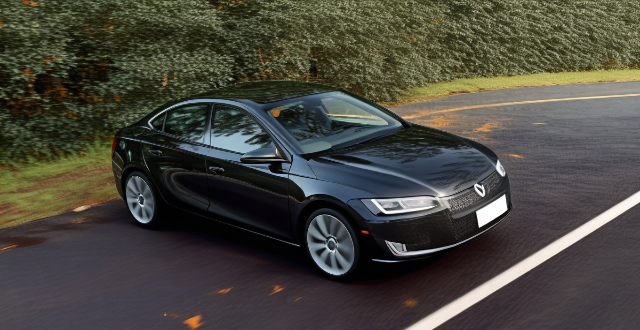
How far can a gasoline hybrid car travel on a full tank of gas ?
The text discusses the fuel efficiency and range of gasoline hybrid cars on a full tank of gas. Factors affecting fuel efficiency include driving habits, traffic conditions, vehicle maintenance, and weather conditions. Gasoline hybrid cars typically have higher fuel efficiency ratings than traditional gasoline-powered cars due to their combination of an electric motor and a gasoline engine. The estimated range of many gasoline hybrid cars is around 300-500 miles on a full tank of gas, with some having larger fuel tanks or higher fuel efficiency ratings allowing for greater ranges. Maximizing fuel efficiency can be achieved by considering factors such as driving habits and vehicle maintenance.

How do power batteries compare to traditional gasoline engines in terms of cost and efficiency ?
Power batteries and traditional gasoline engines are two different types of energy sources that are used to power vehicles. In this article, we will compare the cost and efficiency of power batteries and traditional gasoline engines. Power batteries have a higher initial cost than traditional gasoline engines, but require less maintenance and have lower fuel costs. They also have a higher energy conversion efficiency and can recharge through regenerative braking. However, they have a limited range compared to traditional gasoline engines. Traditional gasoline engines have a lower initial cost than power batteries, but require more maintenance and have higher fuel costs. They also have a lower energy conversion efficiency and cannot recharge through regenerative braking. However, they have a longer range than power batteries. Overall, while power batteries have a higher initial cost and limited range compared to traditional gasoline engines, they offer several advantages in terms of cost and efficiency. As technology continues to advance, it is likely that power batteries will become even more cost-effective and efficient compared to traditional gasoline engines.

How long do diesel hybrid engines last ?
This article discusses the factors that affect the lifespan of diesel hybrid engines and provides an estimate of their expected lifespan. It also offers tips for maximizing the lifespan of these engines through proper maintenance, responsible driving habits, high-quality fuel, and protection against extreme temperatures.
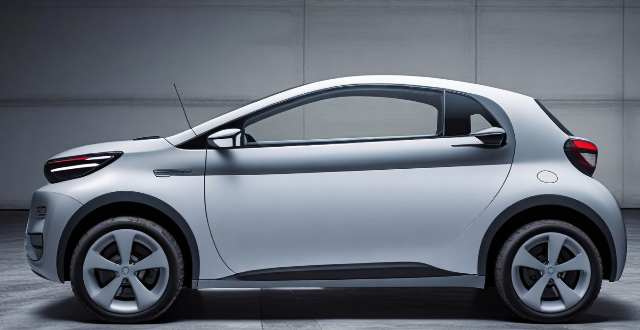
How has the design of fuel vehicles evolved over the years ?
The evolution of fuel vehicle design has been marked by significant changes and innovations over the years. From horse-drawn carriages to modern electric cars, each new development has brought its own set of benefits and challenges. Key milestones in this evolution include the introduction of steam-powered vehicles during the Industrial Revolution, the invention of gasoline-powered vehicles in 1885, the rise of diesel engines in the early 20th century, and the recent resurgence of electric cars. Looking ahead, we can expect further advancements in autonomous driving technology, hydrogen fuel cells, and biofuels made from renewable sources.
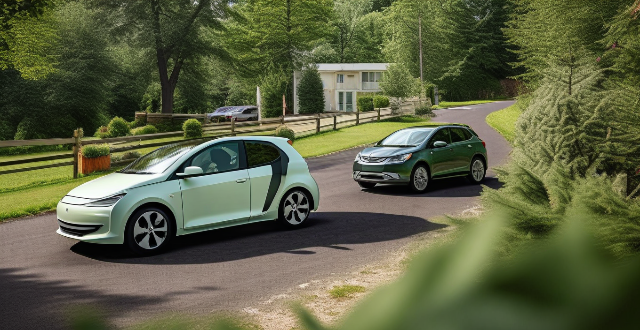
Are there any tax incentives for owning a gasoline hybrid car ?
Tax incentives for owning a gasoline hybrid car include federal tax credits, state and local tax breaks, and renewable fuel tax credits. These benefits aim to encourage eco-friendly vehicle choices and reduce greenhouse gas emissions.

How does the cost of installing and using electric vehicle charging stations compare to traditional fueling stations ?
The transition from traditional combustion engines to electric vehicles significantly impacts fueling infrastructure, with costs associated with installing and using electric vehicle charging stations differing from those of traditional fueling stations. Initial installation for EV charging might be higher due to electrical upgrades required, but operational costs are generally lower than for traditional fueling stations. User costs for EV charging can also be more predictable and potentially lower when taking advantage of off-peak electricity rates.
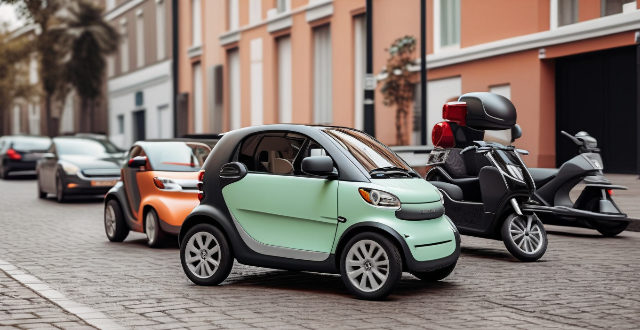
How does the performance of fuel vehicles differ from that of electric cars ?
The performance differences between fuel vehicles and electric cars are significant in terms of acceleration, refueling/charging, emissions, maintenance, and noise/vibration. Electric cars offer faster acceleration, lower maintenance needs, and cleaner operation but may require longer charging times and have limited charging infrastructure compared to the widespread availability of gas stations for fuel vehicles. The choice between the two often depends on personal preferences, lifestyle needs, and environmental considerations.
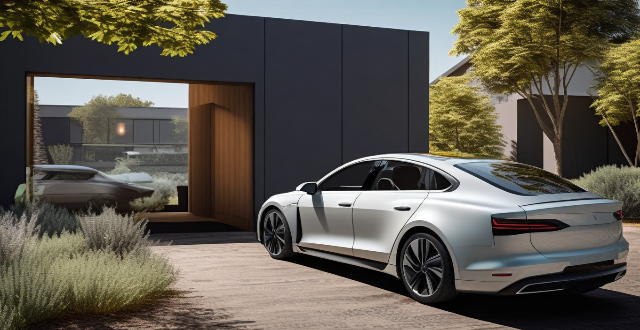
Is it more cost-effective to drive an electric or gasoline-powered car ?
In this article, we explored the cost-effectiveness of driving an electric car versus a gasoline-powered car. While electric cars may have a higher initial cost, they offer several advantages in terms of cost-effectiveness over the long term. Lower maintenance costs, cheaper fuel costs, and potential tax incentives make electric cars a more economical choice for many consumers. Additionally, electric cars have a smaller environmental impact compared to gasoline-powered cars, making them a more sustainable option for transportation.
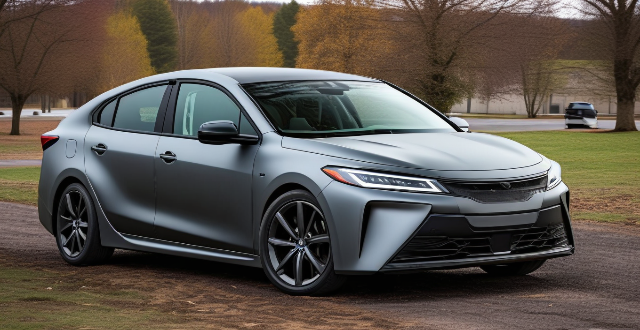
How do gasoline hybrid cars perform in cold weather ?
Gasoline hybrid cars' performance in cold weather can be affected by reduced battery capacity, thicker engine oil, and decreased tire traction. Proper maintenance and adjustments to driving habits are crucial for safe and efficient operation during the colder months.
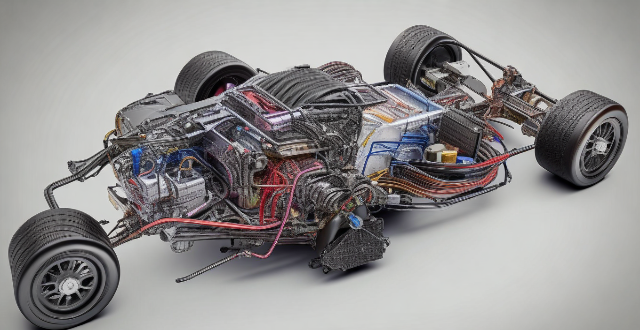
How do electric cars compare to hybrid cars ?
Electric cars run solely on electricity and produce zero emissions, while hybrid cars combine a gasoline engine with an electric motor for improved fuel efficiency. Electric cars offer environmental benefits and lower operating costs but have limited range and long charging times. Hybrids provide a balance between gasoline-powered vehicles and electric cars, with improved fuel efficiency and no range limitations but still rely on gasoline and produce emissions. The choice between the two often depends on individual needs and preferences.